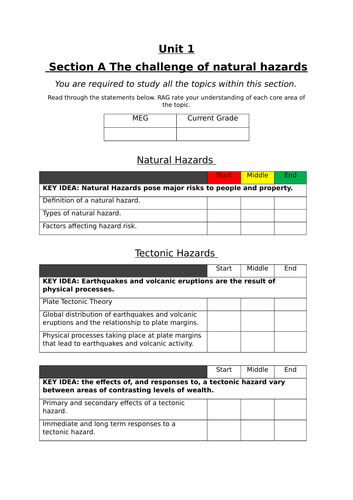SCENE AND REVISION CHECKLIST Use the below questions to prompt you as you critique either your own work, or someone else’s. They may help you define problem areas. Remember to give the author an example if you can, as this will help them. This activity explains how to use checklists to help you plan what to revise and check your progress. The learning outcomes are discussed. The Sandringham ‘Revision Clock’ is a great resource and there is a blog to explore the rationale. I have written a lot here on revision, all stored in my ‘Revision Collection’, as well as articles in TES such as this – ‘Your revision technique should be about quality not quantity‘.
Revision is essential to succeeding in an exam, but many are unsure of how to revise effectively. Our steps will help you to create a structured revision plan in preparation for your exams.
1. Have a complete set of notes

Ensure you have notes for all of the key topics in your syllabus. Having comprehensive notes ensures you do not miss out on any major topics and additionally, rewriting them in your own words will further consolidate them in your mind.
2. Work out how you learn best
Everyone learns in a different way and so it’s useful to figure out what method of revision helps you to retain information. Fleming’s VARK model divides people into visual learners, auditory learners and kinaesthetic (or tactile) learners – and following this can help you plan how to do revision most effectively for your learning style.
Visual learners often benefit from visual content including pictures, diagrams and symbols across colour-coded notes, flashcards and posters.
Auditory learners see success through listening to recordings of lessons, lectures and revision notes and are often able to better retain information through reading aloud.
Tactile (kinaesthetic) learners may revise better through group discussions and the physical act of writing out study and revision notes.
3. Create a revision timetable (and stick to it)
The aim here is for functionality, not aesthetic perfection. A good idea is to give yourself a time limit for creating your timetable so it doesn’t eat into your proper revision time. Check through your syllabus and make sure that you are giving adequate attention to everything that could come up in the exam – it’s really important that you are strict with yourself so that you don’t end up spending two weeks on the first 5% of the content you’ve covered and then end up trying to cram everything else into the final couple of weeks.
Try to come back to subjects a couple of days later, then again a week later and again a few weeks after this. revisiting subjects with a greater break in between will ensure that what you learn is transferred from your short-term memory to your long term memory – and will still be there when you come to sit the exam!
When creating your timetable you should be realistic. Studies show that people can only concentrate for about 45 minutes so work in blocks like this. Schedule in regular lunch and tea breaks and try to take 30 minutes every afternoon to go for a walk in the fresh air. You will struggle to effectively revise for an exam if you quickly burn yourself out at the beginning.
Cambridge Igcse Geography Revision Checklist
You should aim to complete all your learning a couple of weeks before the exam so that you have time to recap.
4. Put what you’ve learnt into practice
Higher Geography Revision Checklist
It’s no good just staring at your notes or copying them out again – you need to test yourself by doing what you’ll have to do in the exam. If you’ve got a Maths exam, set yourself some randomly chosen exercises from the textbook. If you’ve got French comprehension coming up, find an article from a French online paper and summarise it in 300 – 500 words in English. Preparing for History? Look for a past question and try to write a really comprehensive essay plan (including detailed examples!) in 20 minutes.

These are short tasks, but they will really highlight what you need to go over again: perhaps you’ve forgotten that magic formula, you need to go over your verbs again to get the tenses right – or there’s that perfect example which would really clinch your argument that you can’t quite remember. If you discover the gaps in your knowledge yourself and then take the time to fill them, chances are that knowledge won’t escape you again – and you’ll be confident to use it again in the exam.
Revising And Editing Worksheets

5. Relax
Igcse Geography Revision Notes Pdf
Don’t panic and don’t cram. There’s only so much you can do – a maximum of 8 hours per day if you’re taking breaks when you should be – and you should reward yourself (if only to keep yourself sane) when you’ve worked hard.
A-level Geography Revision Pdf
Study-leave, revision and exams are tough, there’s no doubt about it – but proper preparation will leave you feeling confident come exam day.
Igcse Geography Revision Guide
Preparing for an admissions exam? Our library of mock tests for purchase have been prepared by test experts based on the previous year’s admission exams and can help you assess what areas you need to work on before sitting the real thing.